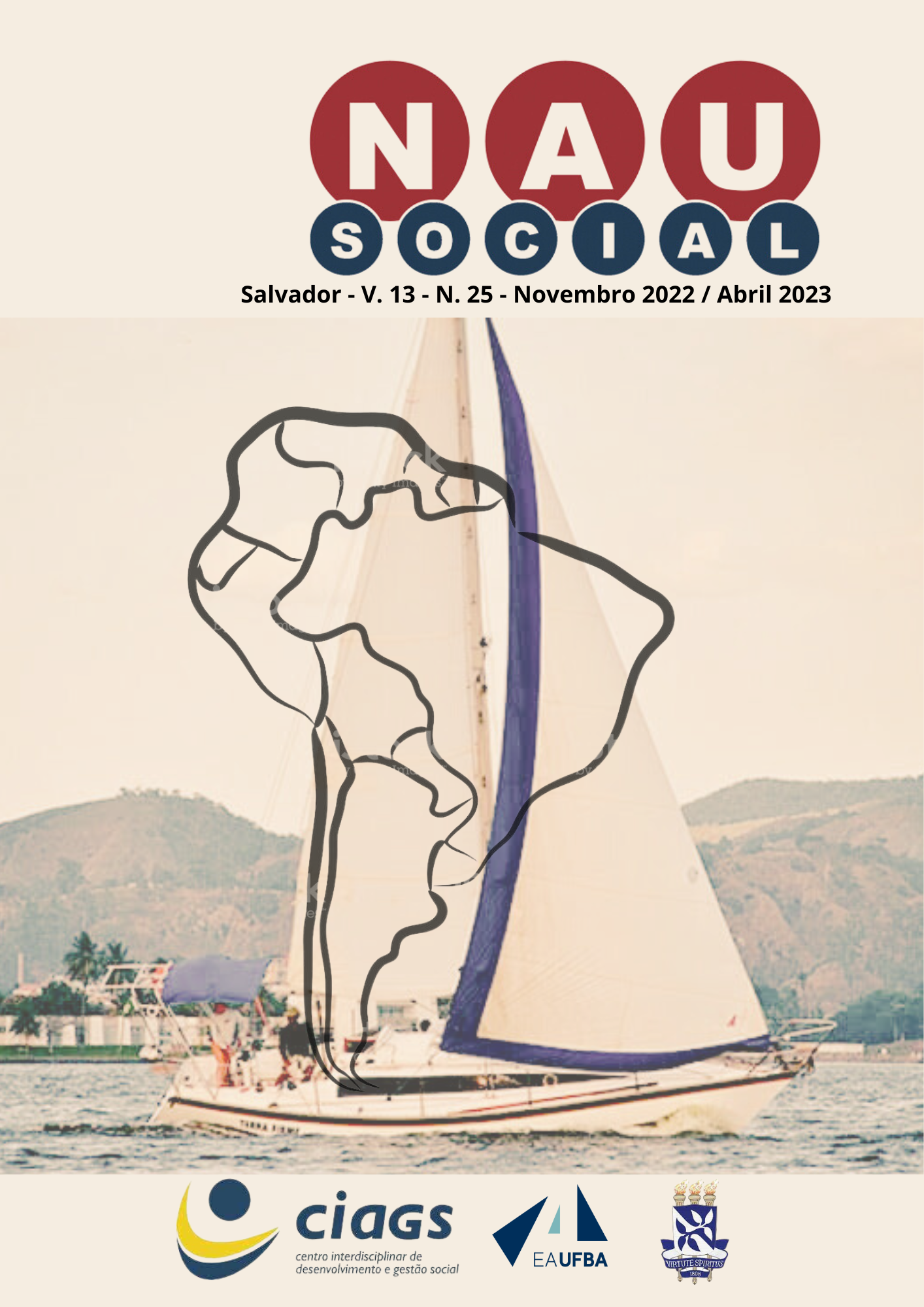EFETIVIDADE DELIBERATIVA DAS INTENCIONALIDADES PARTICIPATIVAS NA COPRODUÇÃO DE BEM PÚBLICO
um estudo de caso do Conselho Municipal do Patrimônio Cultural de Andrelândia-MG
DOI:
https://doi.org/10.9771/ns.v13i25.47839Abstract
The Federal Constitution of 1988 instituted mechanisms of social participation, which enabled the configuration of the model of participatory democracy in the country. In recent years, one of the research approaches that has gained relevance on the subject concerns participatory effectiveness, especially in management councils (WAMPLER, 2011; LAVALLE; VOIGT; SERAFIM, 2016), which can be explained by the association between participation and public policies (AVRITZER, 2011). Inserted in this approach, the co-production of the public good constitutes a reference for the analysis of participatory institutions and can be understood as the construction of a public good in a plural and inclusive way with the purpose of the common good (ROCHA et al., 2012; NETO; SOUZA; SALM, 2014). Based on this discussion, the main objective of the article is to analyze the deliberative effectiveness of the Municipal Council of Cultural Heritage of Andrelândia-MG in the co-production of public good in the period from 2015 to 2019. To this end, the methodology of a single case study was adopted, with data collection being carried out through bibliographic, documentary and field research, which made it possible to triangulate the techniques. Data treatment followed the elaboration of mixed grid-type analysis categories on deliberative effectiveness. Simple electronic tabulation of data was also used. The results indicate that COMPAC's performance is concentrated in its administrative management to the detriment of public policy production. However, the Council's role in monitoring actions for the preservation of municipal heritage stands out.
Downloads
Downloads
Published
How to Cite
Issue
Section
License

This work is licensed under a Creative Commons Attribution-NonCommercial 4.0 International License.





